
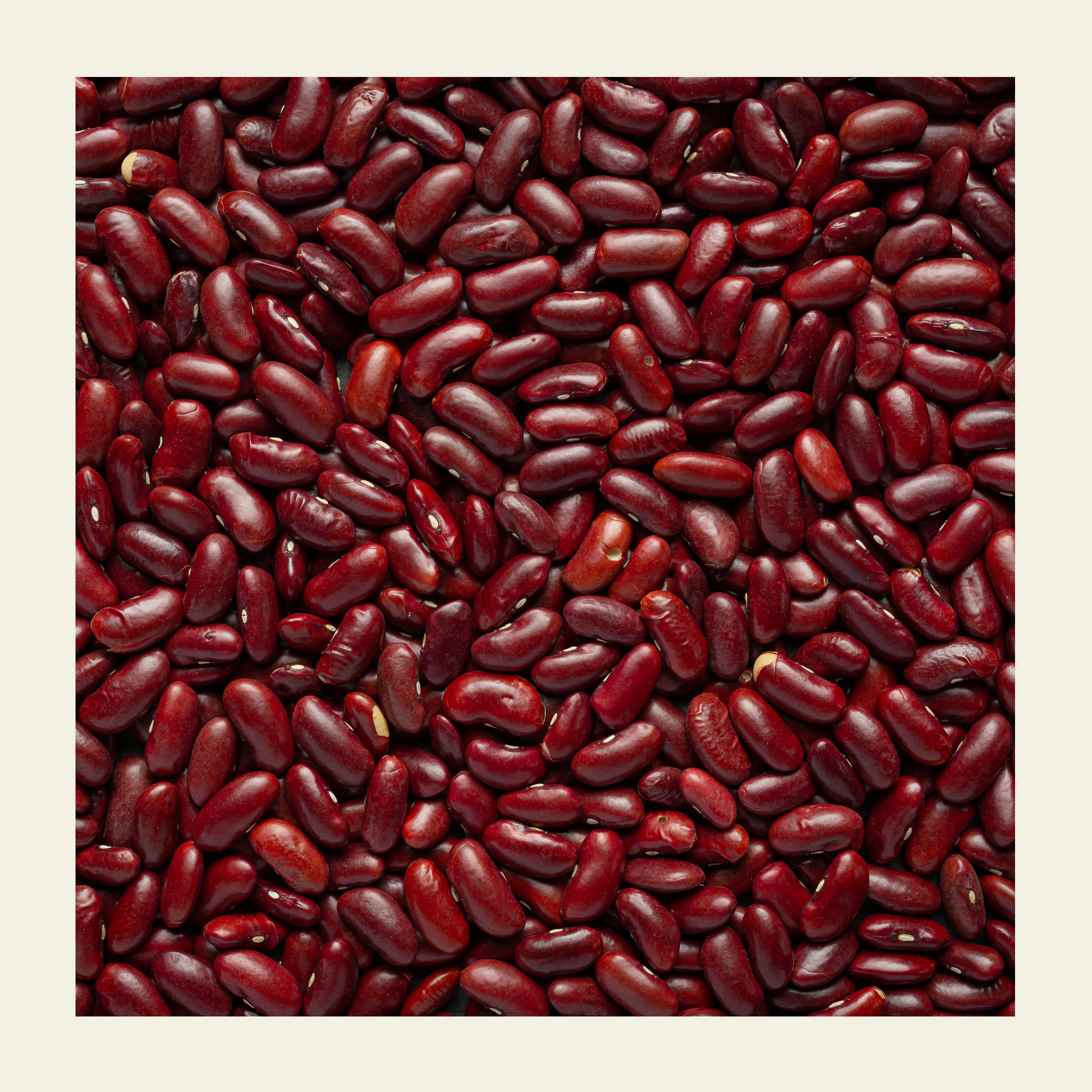
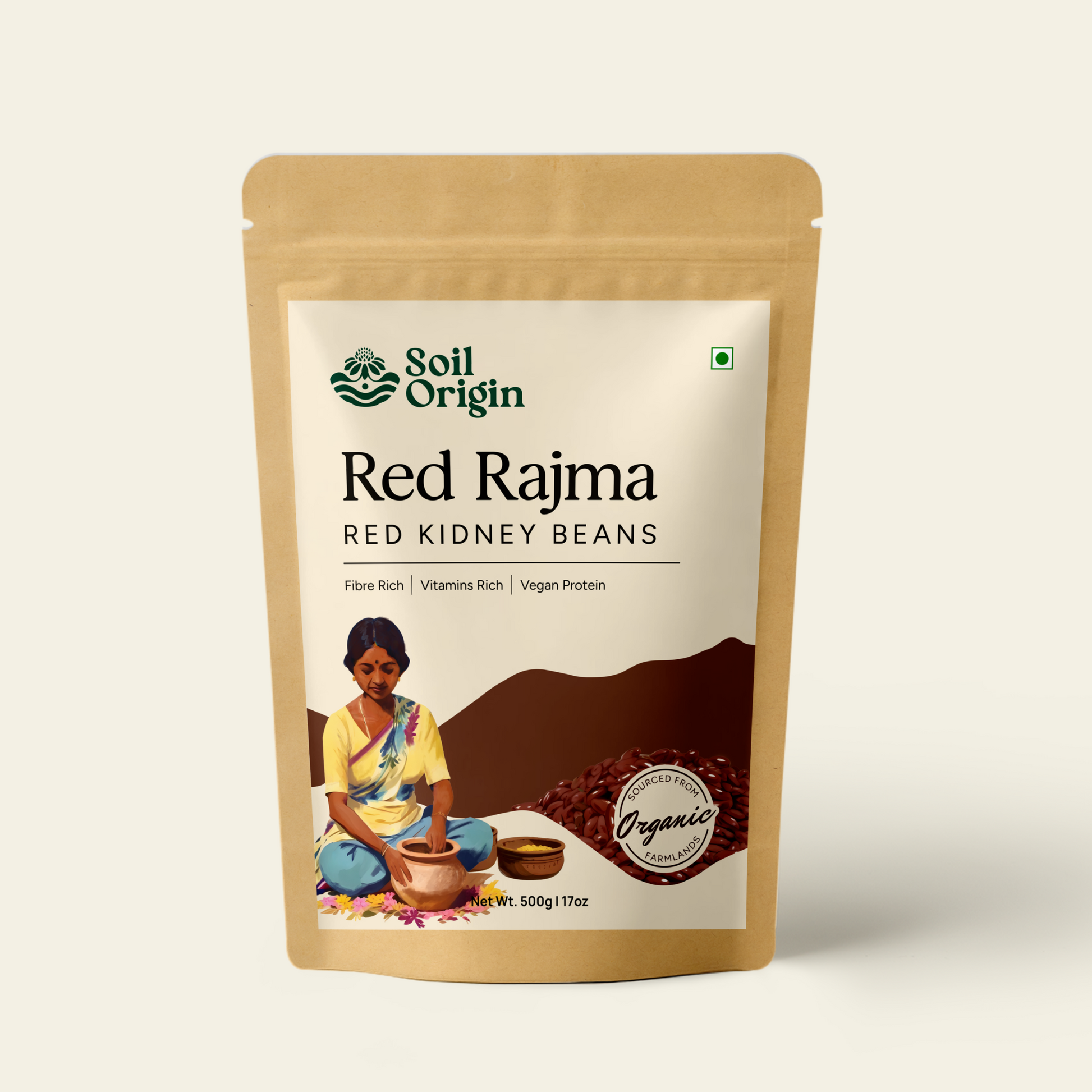
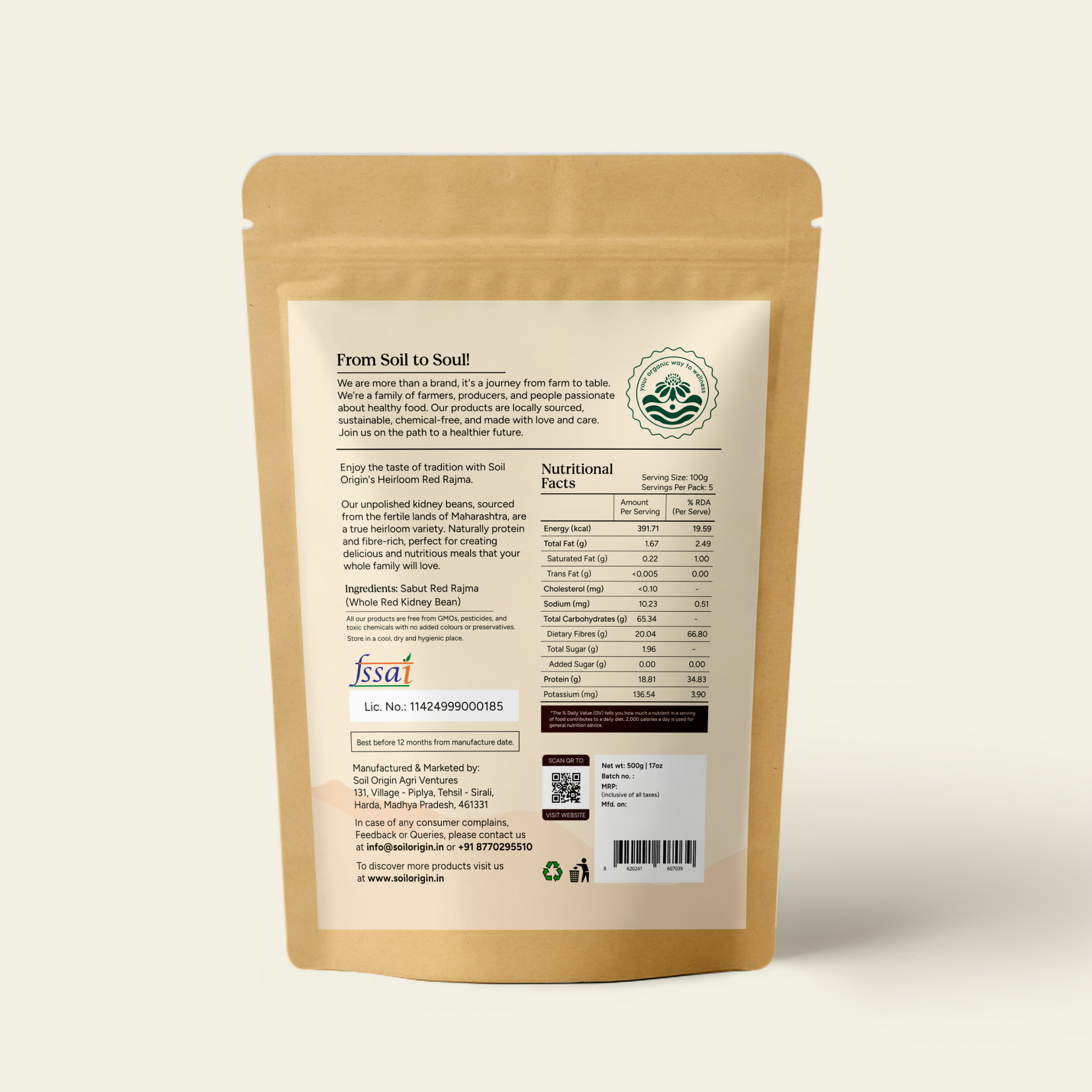
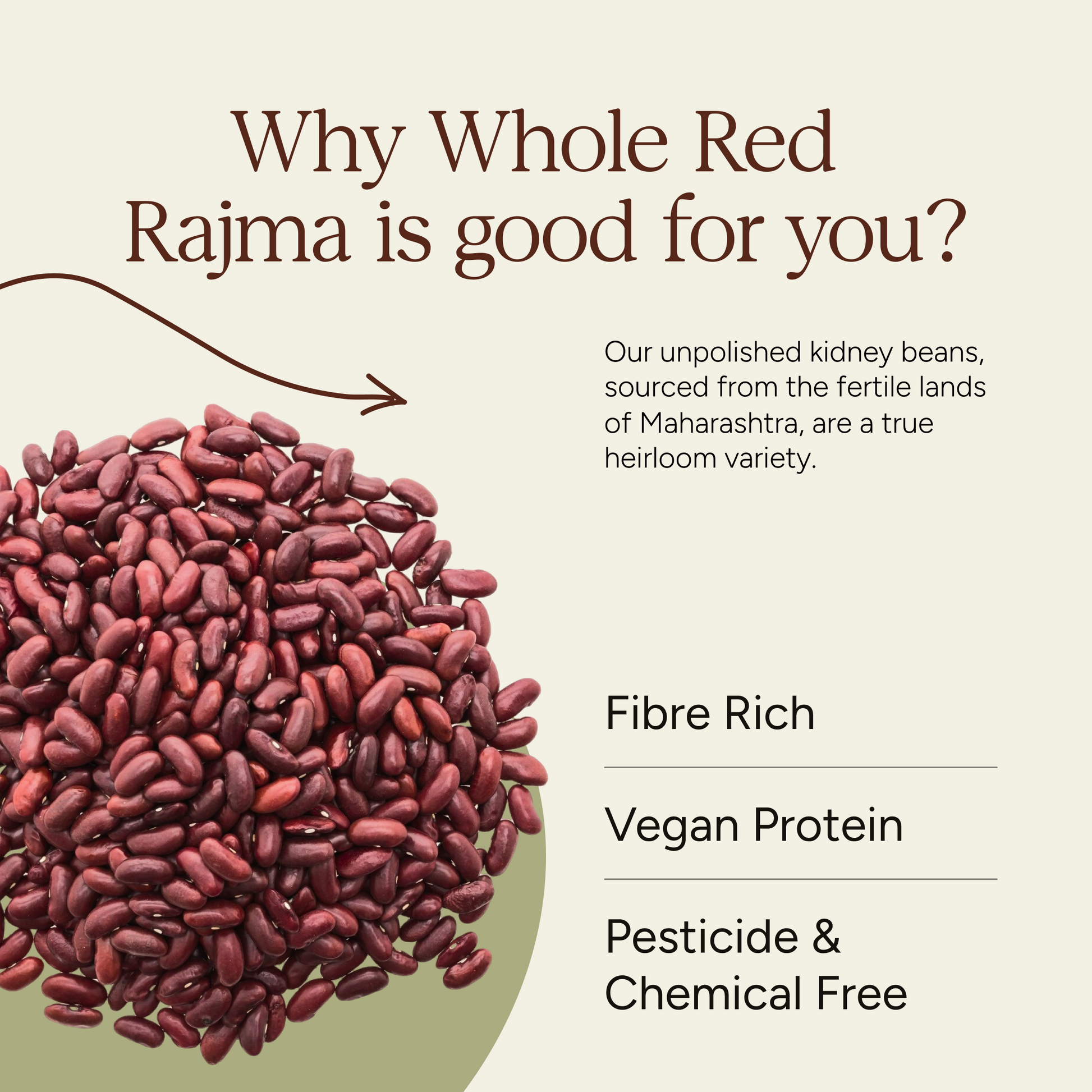
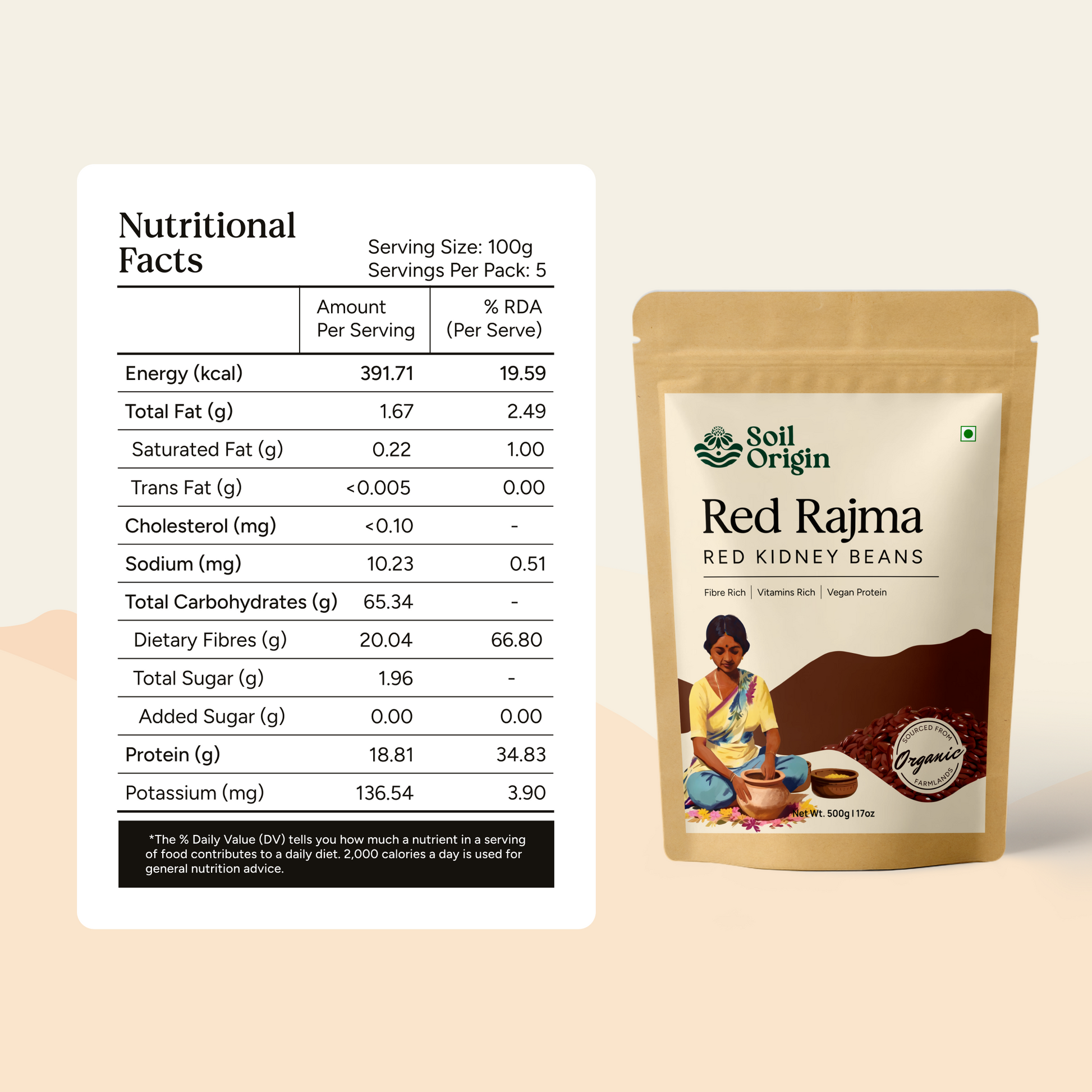
Red Rajma (Kidney Beans)
Weight: 500 g
-
Tax included. Shipping calculated at checkout.
Enjoy the taste of tradition with Soil Origin's Heirloom Rajma. These unpolished kidney beans, sourced from the fertile lands of Maharashtra, are a true heirloom variety. Handpicked and naturally protein and fiber-rich, these beans are a nutritious and wholesome addition to any meal.
Experience the authentic taste and goodness passed down through generations with our heirloom rajma. The unique flavor and rich texture of these beans make them perfect for a variety of dishes, from classic Indian curries to hearty stews and salads. Their robust taste and high nutritional value ensure that you not only enjoy delicious meals but also benefit from essential nutrients.
Soil Origin's Heirloom Rajma is naturally gluten-free and ideal for those looking to incorporate more plant-based proteins into their diet. Free from pesticides and chemicals, these kidney beans offer pure, natural goodness. Add them to your kitchen and savor the tradition of quality and taste.
- Helps manage glucose and cholesterol levels, promoting healthy blood flow and easing hypertension.
- High in dietary fiber, it aids in weight control and fights obesity.
- Boosts metabolism as it's rich in proteins and fiber.
- Strengthens immunity and combats harmful bacteria and viruses due to its antimicrobial properties.
Store in an airtight container in a cool, dry place
Shelf Life: 12 months from MFD
Uttarakhand
Uttarakhand, a mountainous state in northern India, is renowned for its picturesque landscapes, serene temples, and diverse agricultural produce. The state's temperate climate and fertile valleys make it ideal for horticulture and agriculture. Uttarakhand is a significant producer of brown rice and red rajma (kidney beans), both of which are cultivated in its nutrient-rich valleys and are staples in the local diet. Additionally, the state is known for producing apples, peaches, plums, and pears, which are cultivated in the higher altitudes. It also grows temperate vegetables like potatoes, cauliflower, and cabbage. Uttarakhand is a producer of buckwheat, a nutritious grain that is gaining popularity due to its gluten-free properties. The state's traditional agricultural practices, often involving terraced farming and organic methods, have helped preserve its natural beauty and biodiversity.
FAQs
Yes, red rajma has a low glycemic index and high fiber content, making it beneficial for managing blood sugar levels.
Yes, our Red Rajma are naturally gluten-free, making it suitable for individuals with gluten intolerance.
Red Rajma can be used in a variety of dishes like curries, stews, salads, wraps, etc. offering a protein-rich addition to meals.
Yes, if not cooked properly, it can cause gastric and bloating issues in some individuals.
Red Rajma supports heart health and helps manage blood sugar levels. It has high fiber content and also also beneficial for weight balance.














